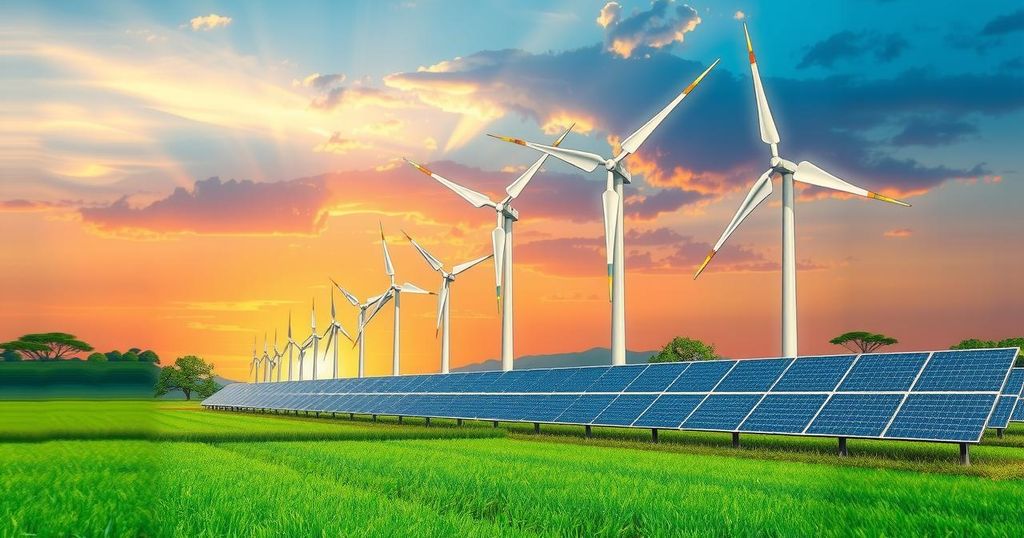Wärtsilä Proposes 100% Renewable Energy Roadmap for Nigeria by 2060

Wärtsilä’s report outlines a roadmap for Nigeria to achieve a fully renewable energy system by 2060, consisting of 1,200 GW of renewable capacity, 283 GW of energy storage, and 34 GW of engine-based power. The plan emphasizes the importance of domestic gas and substantial investments totaling $425 billion by 2060, necessitating significant policy reforms to attract investment. Successful implementation could lead to universal electricity access by 2032 and a decarbonized power system by 2060.
Wärtsilä has published a report titled “Nigeria Leading Africa to Net Zero,” detailing a roadmap for Nigeria to achieve a 100% renewable energy system by 2060. This plan aims to ensure climate action while addressing the country’s growing energy demands and ensuring widespread access to electricity. The report emphasizes the importance of data-driven strategies and advanced energy modeling to create a cost-effective power system that progresses yearly toward net zero emissions.
The proposed optimal power system is designed with 1,200 GW of renewable energy capacity, alongside 283 GW of energy storage and 34 GW from engine-based power plants for grid stability. The report indicates that substantial investments in renewable energy and flexibility through gas engines and energy storage will reduce energy costs and enhance grid reliability. By 2060, electricity generation costs are expected to decrease by 74% compared to 2022, while carbon emissions could reach zero.
The report highlights the crucial role of Nigeria’s domestic gas reserves in facilitating a smooth transition to renewable energy. These gas resources can be utilized as a cost-effective bridging fuel for balancing power until the conversion of gas engine plants to operate solely on green hydrogen, which is anticipated to begin in the 2040s.
Wale Yusuff, Managing Director of Wärtsilä in Nigeria, stated, “If the power system expansion roadmap presented to the report is successfully implemented, by 2060 Nigeria’s power system will be fully decarbonized and able to meet the energy needs of our country’s rapidly growing population.
Nigeria possesses the necessary resources to achieve a renewable energy transition by 2060, but substantial investments and policy reforms are essential to facilitate this change. The roadmap outlined by Wärtsilä illustrates the need for a significant increase in renewable energy capacity, investment in energy storage, and improvements to infrastructure. By overcoming these challenges, Nigeria can secure universal access to affordable, reliable, and fully decarbonized electricity.
Original Source: www.itnewsafrica.com







